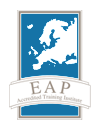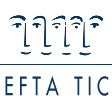The main learning outcomes are an ability to develop effective therapeutic relationships with a range of clients; an ability to use a range of techniques to help clients to make changes in their lives; an ability to recognise the limits of personal expertise, skills and approach and refer clients appropriately; a capacity to use the supervision and consultation processes.
Content* of the training program:
- Depression and suicide
- Psychotic disorders
- Addictions
- Chronic illness
- Families with an adolescent
- Behavioral disorders and family therapy
- Eating disorders and family therapy
- Working with disabled, elderly, HIV positive
- Supervision
|
 |
Topics for seminars:
- Gender sensitive family therapy
- Cultural sensitive practice and cultural genogram
- Ethical and antidiscriminatory practice
- Systemic work in couple therapy
- Sexual dysfunctions
- LGBT couples
- Therapeutic relationship
- Research in family therapy
- Concepts and methods of other psychotherapeutic modalities in family therapy
- Systemic work with teams and organizations
- Working with emotions in family therapy
- Interventions in different settings and contexts
- Critical review of different family therapy approaches in practice
- Use of Self in family therapy
- Ending family therapy
|
 |
*It is possible that the content of the course may change depending on the needs of the trainees. During the course issues of gender, race, age, class, education, cultural diversity, sexual orientation, resilience and ethics will be elaborated.
Basic method is interactive, group work, and it includes supervision of the trainees’ recorded family therapy sessions.
Seminar topics
Trainees are required to prepare a topic using an interactive method which they will present to the other trainees during a workshop. The structure of the presentation needs to include short theoretical issues related to the specific topic/theme they chose, application of the theme in clinical practice and some exercises for trainees that will allow them to experience and work through the theme. It is expected from other trainees to read the basic relevant literature which the trainers will provide. It is important to note that at this moment in the training program, it is expected from the trainees to also make an effort and search for the relevant literature.
Peer groups
Between monthly workshops, the trainees will have to meet in their peer groups, with specific tasks, on a regular basis. The main learning outcome of the peer group is to help the trainees to develop an ability to present their clinical case in a systemic way (therapists’ dilemmas, impasses, etc). The trainee who is presenting their case will have to think of relevant questions related to their work with the family. The role of the other members of the peer group is to give their fellow trainee a constructive feedback which is related to the relevant competencies of the trainee, as well as ideas about new perspectives and possibilities.
Personal development
Over the course of the last two years of training, trainees have to submit a document verifying the number of hours they have had of individual and/or group therapy with a certified psychotherapist of their own choice.
It is important to note that the training requirements are in accordance with the standards set by the European Association for Psychotherapy.
|








